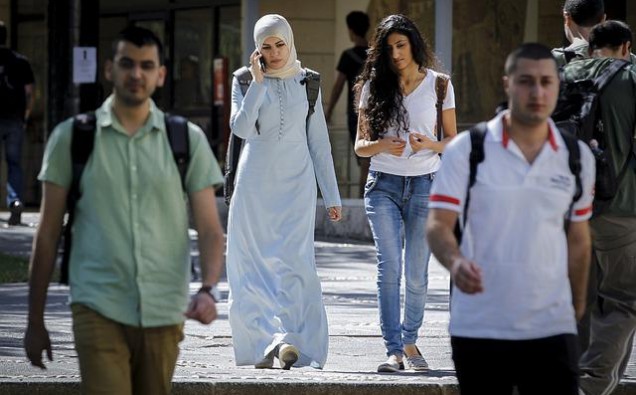Muslims living in the UK think health research is very important but only a small number have taken part in any genetic research studies, according to a new report published today.
The report, Attitude towards health and medical research within the Muslim community, was commissioned by Genomics England and compiled by Muslim Census – an independent organisation committed to collecting representative data to highlight issues faced by the UK Muslim community. Its findings are based on a survey of more than 1,000 adult Muslims.
Genomics England wanted to understand how Muslim communities viewed medical research as part of its Diverse Data initiative, designed to tackle the historical problem of a lack of diversity in medical science and research.
This understanding is important because, to date, studies of genetic diseases have been largely based on European ancestry, with ethnically diverse people being massively under-represented. The use of imbalanced and biased datasets has crucial implications for the increasing use of genetics in UK healthcare, as it can result in misdiagnoses, poor understanding of certain conditions and inconsistent delivery of health care.
It can also lead to uncertainty among under-represented communities around the collection and use of their genetic data.
Key Findings
The report found that 86% of Muslims viewed health research as very important and 56% said they would be willing to participate if asked – views which are broadly representative of the general population. But only 4% of respondents said they had taken part in genetic research.
Opinions varied between different groups within the Muslim community on the issue of trusting healthcare institutions to protect their data.
Overall, nearly two thirds said they would be happy for the NHS to use their data for healthcare research and Arab Muslims were especially open to the idea, with nearly three quarters willing to trust the NHS with their data.
But just over a half of Black Muslims surveyed said they would be willing to allow the NHS to use their data for research and only a fifth said they would participate in medical research.
Genomics England ambassador Aman Ali is leading the drive to increase awareness of the benefits of genetic research among Muslim communities, using networks established during the early months of the pandemic after it became clear that Black and Asian communities were being disproportionately affected by the virus.
He encouraged Muslims to take part in a study, led by Genomics England in partnership with the University of Edinburgh, which analysed the genes of people who had been infected with COVID to discover why some experienced no symptoms while others became critically ill.
Aman said: “It’s clear from this report that most Muslims recognise the benefits of health research but a lot more work needs to be done by the scientific community to increase engagement with Muslims and improve their representation, particularly in the field of genetic research.”
Zaynah Asad, Project Manager at Muslim Census, said: “While Muslims largely trust the NHS and have a clear interest in scientific developments, they are more sceptical of sharing data with universities and other healthcare institutions. Almost all survey responses highlighted the need for transparency from researchers to build trust with the Muslim community. Researchers should continue to engage directly with the Muslim community and Muslim-led health organisations to raise awareness and ensure Muslims are represented in genetic research.”
Maxine Mackintosh, Genomics England’s Programme Lead on Diverse Data, said: “We want to make sure that all patients have equal, effective, and affordable access to genomic medicine and, to achieve this, scientists need greater availability of genomic information from diverse populations including our Muslim communities.”
“We can see from this report that UK Muslims are generally highly supportive of health research though it’s important to recognise the diversity of views amongst different groups within UK Muslim communities. Acknowledging that those doing research and providing healthcare services have not always done enough to address inequities I think is an important first step. Now we need to dig deeper to understand and tackle the reasons for a lack of trust in specific communities, especially on the issue of protecting people’s medical data.”
To find out more about how Genomics England is transforming the future of healthcare and different ways to get involved in research, visit:
https://www.genomicsengland.co.uk/patients-participants/taking-part

















